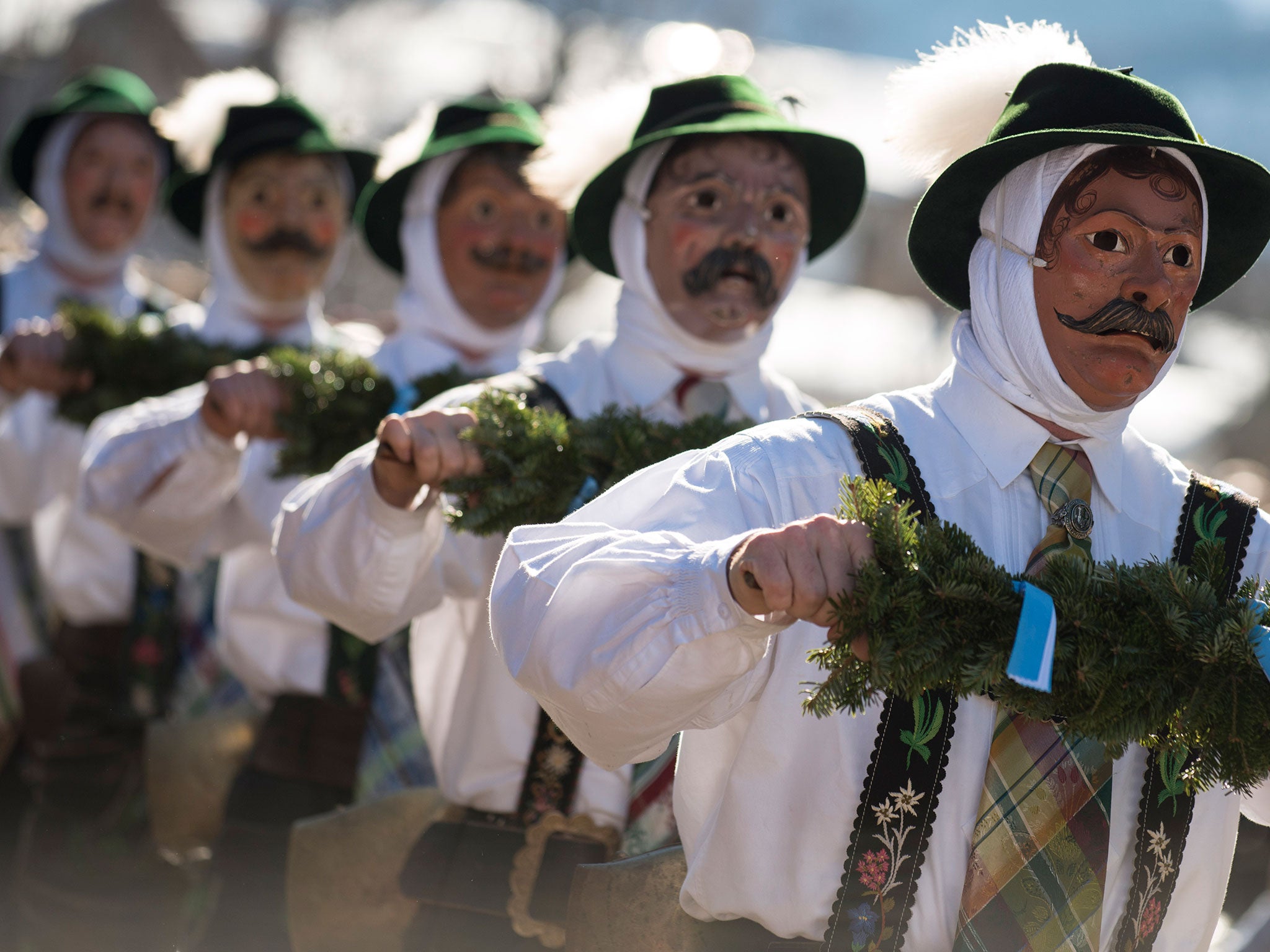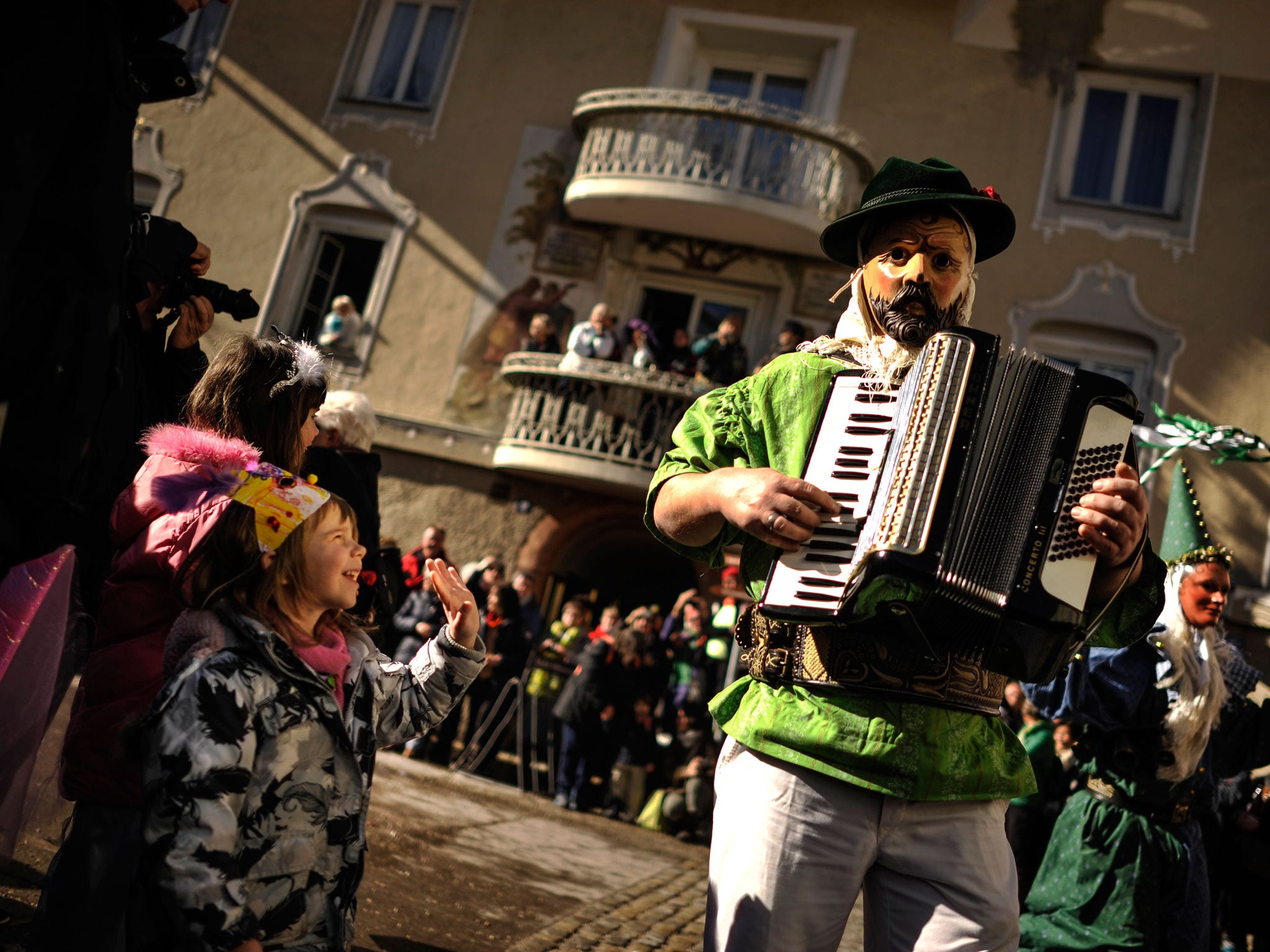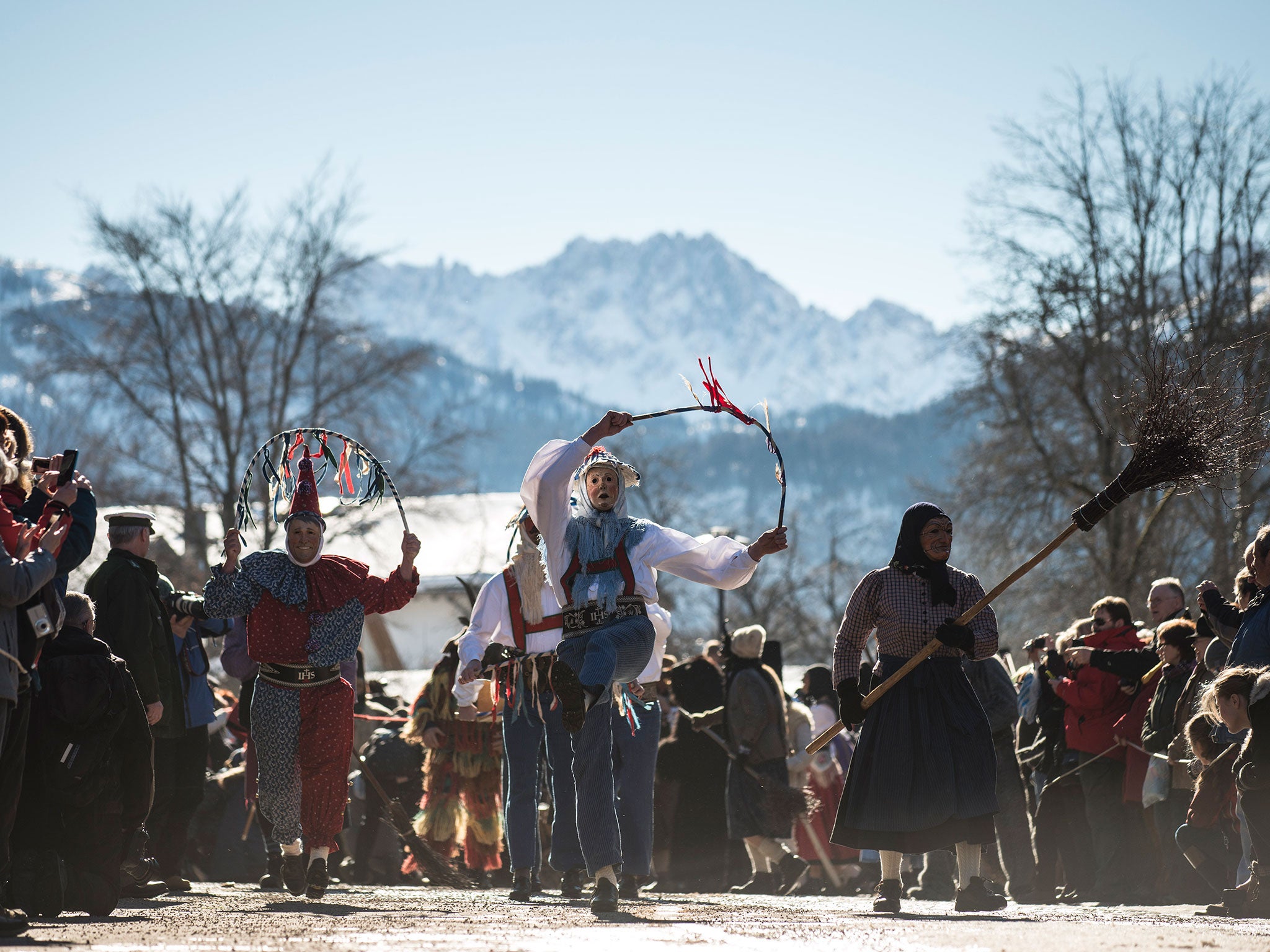Refugee jokes banned at Austrian carnivals as organisers work to involve asylum seekers in celebrations
'Hurtful attacks on defenceless people are inappropriate,' a new ethics code says

Your support helps us to tell the story
From reproductive rights to climate change to Big Tech, The Independent is on the ground when the story is developing. Whether it's investigating the financials of Elon Musk's pro-Trump PAC or producing our latest documentary, 'The A Word', which shines a light on the American women fighting for reproductive rights, we know how important it is to parse out the facts from the messaging.
At such a critical moment in US history, we need reporters on the ground. Your donation allows us to keep sending journalists to speak to both sides of the story.
The Independent is trusted by Americans across the entire political spectrum. And unlike many other quality news outlets, we choose not to lock Americans out of our reporting and analysis with paywalls. We believe quality journalism should be available to everyone, paid for by those who can afford it.
Your support makes all the difference.Austria’s carnival authority has banned jokes targeting asylum seekers, foreigners, minorities and “defenceless people” in the traditional celebrations.
Festivities in the run-up to Lent include parades, costume balls, music and performances across the country, where participants dress up and wear intricate wooden masks.
Comedy is a key part of the period, known as Fasching or Karneval, but the Austrian Carnival Guild (Bund Österreichischer Faschingsgilden) has drawn up a new ethics code on acceptable jokes.

“Hurtful attacks on defenceless people, majorities sneering at minorities, cutting mockery and malice, irony and sarcasm - even if they get roars of laughter from the audience - are inappropriate,” the code reads.
“Laughing at others' expense always leaves a bitter aftertaste.”
The guild said Fasching “is open to social and societal changes over time” and that a current challenge is to ensure the “integration of migrants into traditional events” to secure their future.
In a section on “respecting values and limits”, its code says that although fun is the top priority, “human dignity is inviolable” and people’s feelings should not be hurt.

“This is especially the case for dealing in religious matters,” it says, adding that all religions should be treated with respect.
The new guidelines are in line with those applied to the carnival period in Germany and Switzerland, The Local reported.
Adi Mittendorfer, the Austrian Carnival Guild’s president, told the website: “People should be aware of the effect of such jokes. Anything which drags human dignity or faith in the dirt is not allowed.”
His deputy, Alfred Kamleitner, said sexist jokes were also frowned upon, adding: “I don’t think it's funny to see scantily clad nuns running around on stage.”
Mocking “the follies of everyday life” and prominent politicians and celebrities is, however, perfectly acceptable.
It comes after German carnival organisers in Cologne and Bonn printed leaflets in Arabic and Farsi instructing refugees not to kiss people without consent or urinate in public.
Austria’s carnival tradition mirrors similar celebrations across historically Catholic parts of Germany and Europe dating back to the 13th Century.
It officially starts on Epiphany (6 January) and celebrations continue until Shrove Tuesday, which will fall on 9 February this year.
Austria expected to receive 80,000 asylum applications last year and is planning to cap the number of new arrivals at 37,500 for 2016.
Join our commenting forum
Join thought-provoking conversations, follow other Independent readers and see their replies
Comments